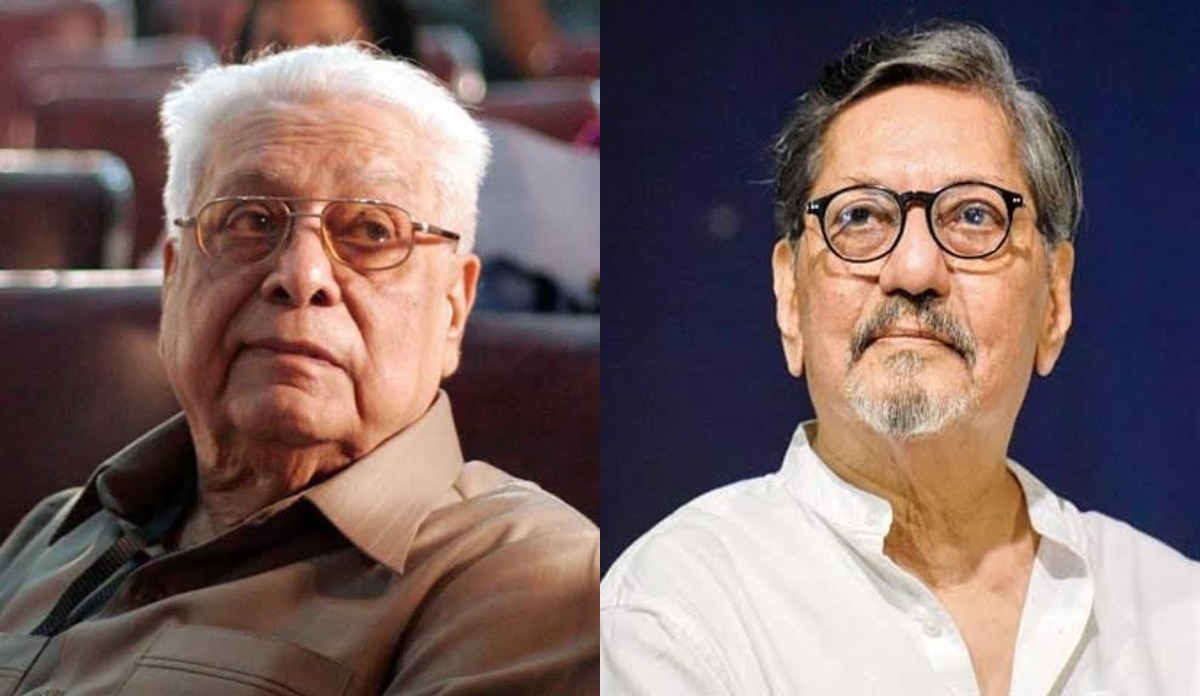Filmmaker Basu Chatterjee’s films are relevant even today as they were simple stories told in an assuming manner, says actor Amol Palekar, the star of many of the director’s middle-of-the-road brand of cinema. Chatterjee’s films are quoted by filmmakers for challenging the theatrics of commercial cinema while being more accessible than parallel films of the era, but Palekar believes the veteran filmmaker was never given due credit by the industry or media.
Chatterjee, one of the pioneers of this gentler style of cinema in the country, breathed his last at his home here on Thursday. He was 93.
In an interview with PTI, Palekar, whose partnership with the filmmaker stretched through eight films, remembered Chatterjee's unmistakable simplicity and contribution to the common man's cinema. The duo first worked on "Rajnigandha" in 1974, followed by a string of successes in the form of "Chhoti Si Baat", "Chitchor" and "Baton Baton Mein", which cemented Palekar's position as the everyday man's hero.
"He kept on making parallel films, without making any commercial compromises and yet made very successful films. He, being one of the pioneers in that, I feel the industry and the media never acknowledged this fact, this contribution of Basu da. I feel really sorry, that what was due to him, was never ever given to him," the veteran actor said.
Palekar said it's important to look at the films Chatterjee made with a historical lens. The rise of Chatterjee's brand of cinema in the 1970s was parallel to the larger-than-life action dramas of the times. Yet, amid all the blockbuster noise, Chatterjee chose to chronicle quieter stories of life's ordinariness.
"At that time, on one hand there was this mainstream cinema, where everything was—and still is—larger-than-life. Where you needed and still do, a dramatic story, fast-paced twist-laden narratives, Basu da's films were devoid of any of this.
"His films had simple stories told in an unassuming manner. Yet, they were so interesting, you simply loved them. His films are still relevant because he talked about common men, ordinary people." Chatterjee could tell simple stories with much conviction perhaps because he never took himself or his success seriously, said the 75-year-old actor. "Basu da was such a lovely, simple human being. One of the greatest qualities I learnt from him was never to be bitter or critically caustic about anything.
"He had this lovely sense of humour. He looked at life with humour, which is such a boon. No matter what the situation, he knew how to smile and laugh. He was enchanting, simple like his films. The best part was that he remained so, despite all the success." While his films invoke sweet nostalgia of the simpler times, they also find resonance with the everyday struggles of the common man even today, Palekar said.
"The characters were so real. When you watch a Basu da film, you feel 'Oh, I know this boy!' or 'Yes, this is exactly what my problem was yaar.' To touch that core, Basu did it so effortlessly and beautifully." This type of "Basu Chatterjee guy", Palekar said, was the kind he would pick from his everyday life. He looked for inspiration not from the prototype on screen, but from people on the streets. "He didn't talk of heroes, of Ram, Laxman or the most superior men that heroes are expected to be. Our heroes are supposed to be so larger-than-life that at one stage they become unreal.
"But he never talked about such characters or stories. He looked at lives around him, which one would identify easily."
For Palekar, the key to their partnership was "simplicity". Looking back at their legacy with utmost fondness, the veteran actor said he's grateful for the movies they made together."We did so many films, created so many memories. But we never spoke about his favourite performances of mine. He never said, I never asked," he added, almost reminiscent of their song "Na Bole Tum, Na Maine Kuch Kaha" from "Baaton Baaton Mein".

